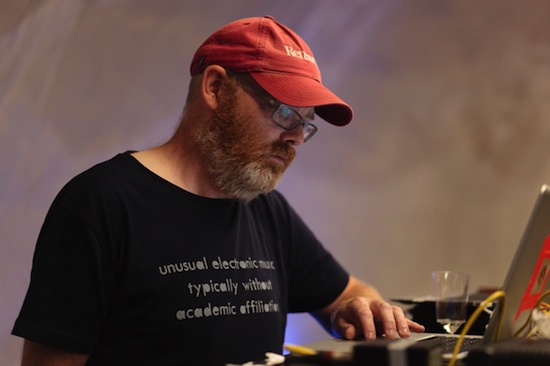Photograph courtesy of Lewis Ronald/Serpentine Galleries
It’s long been traditional to introduce Mark Fell as one half of Snd (alongside Mat Steel), the Sheffield duo who, for almost two decades, have been sporadically scratching minimalist techno’s itch for glitch. Fell’s academic approach to beat-bludgeoning, however, has led him towards even more intriguing, challenging territory. These have included the mathematically-inspired theories and shapes of 2010’s Multistability 12" (released by Raster-Noton) to last year’s 64 Beautiful Phase Violations, performed in Salford University’s anechoic chamber (and covered in wonderful depth by John Doran here). His love for synthetic sounds, a profound understanding of the science of dance music and a delight in the complexity of conflicting time signatures, make for a surprisingly seductive brew, as instinctive as it is cerebral.
The Quietus tracked Fell down on his way to Portugal, where he’s scheduled to play this weekend at Braga’s compelling Semibreve festival. He’ll perform under his Sensate Focus alias, which, in the past, has found him collaborate with the likes of Vladislav Delay and DJ Sprinkles aka Terre Thaemlitz, and calls upon the sparser, if more nostalgic, sounds of house music. His Baker’s Dozen, penned in transit lounges and on planes as he crossed Europe, reflects a deep and thorough love for electronic music in a wide variety of guises, and highlights a fascination with the album as format and art form. It, too, is as instinctive as it is cerebral.
Full details of Semibreve are here. Click on his image below to begin scrolling through Mark’s choices


